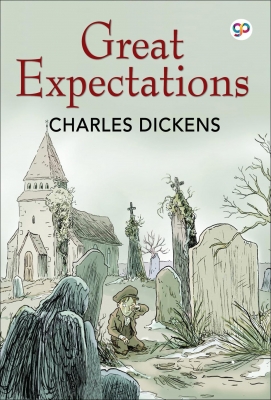
Great Expectations is a literary masterpiece by Charles Dickens that presents a caricature of the unjust socio-economic conditions of 19th Century England from the point of view of its seven-year-old protagonist Pip. Let’s us look at what makes this novel relevant today.
Charles Dickens was born in Portsmouth in February 1812. His father was a clerk in the Navy office: because of this, they had to constantly move about and follow his different appointments. The looming money troubles caused the ten-year-old Dickens to leave school to take up work so he could contribute to the family’s income. He was sent to work at a blacking factory in London that made polish for metal surfaces. His experience at the factory was scarring and traumatic. These childhood experiences became an intangible part of all of his narratives and made him sensitive to the precariousness of life. Research suggests that this is one of the main reasons why the protagonists of some of his most iconic books like Oliver Twist, David Copperfield and Great Expectations, are children bound by unfortunate circumstances.
Great Expectations
Great Expectations begins with a young boy named Pip encountering an escaped convict in a churchyard. The child is terrified and intrigued and he brings the convict some food. This act of kindness, then, set up ripples that will work their way through his life and that of the convict for many years to come. This novel is a bildungsroman (a coming-of-age story) on the experience of childhood and great expectations of the future that help one move forward. Robert Douglas. Fairhurst, an author and professor at Oxford University, calls it the best novel about growing up and the strains and scars it leaves behind.
What makes it a classic?
The narration
Dicken’s mastery of storytelling is reflected in his ability to capture the voices of people from different social classes without being biased. By writing Great Expectations in the first person, he crafts a narrative that puts the reader in the shoes of the poor, orphan Pip on a journey to fulfil his ambition to rise above his social standing and take his place in society as a gentleman. As a story told in three parts, at three different stages of Pip’s life, the novel focusses on the role of life experiences in shaping the personality of an individual.
Literature: A catalyst for change
As one of the most famous novelists writing in the English language in the 19th Century, Dicken’s ambition in life was to prove that stories and literature could help fix the problems of the world. Even from the early days of his childhood, he displayed all the signs of a great showman. Public readings held by the author displayed his genius of getting the audience interested in serious topics like the evils of industrialising society, the sordid working conditions in factories, child labour and the inefficiencies of the government through stories with interesting plots, clownish characters and happy endings. Through his stories, Dickens set out on a mission to educate society.
One of the main reasons why Great Expectations has managed to stay relevant in the 21st Century is because we still live in a time of extreme inequality and indifference.
Picture Credit : Google



